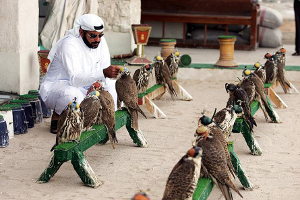In the course of a flurry of allegations against Qatar in recent days, Egypt sought a UN inquiry into Qatar for having paid ransom to secure the release of a number of Qatari hostages, including members of the royal family, held by Shi’ite militants in Iraq. The suggestion was Qatar had paid these militants $1 billion, and that some of the money ended up in Iran.
Iraqi Prime Minister Hayder Abadi insists this is entirely false, saying that a $500 million payment made by Qatar is still deposited in the Iraqi central bank, and that not one dime of it was ever given to the militants involved, but remains untouched since the hostage release.
The group of hostages, a collection of Qatari falconry enthusiasts, were on a hunting trip in Southern Iraq when they were captured by the militants, and were held for some 15 months before their release was secured. The Iraqi government sent the hundreds of millions of dollars to Iraq in suitcases.
The Iraqi government was not told about the payment,and when they found the suitcases, they seized them, depositing them in the central bank pending the resolution of the situation. Ironically, the hostages were all released, but the militants never found a way to get the money out of the bank. Whether it will eventually be returned to the Qatari royal family or not is unclear.
Iraqi officials say that the future status of the money is legally unclear under Iraqi law. Many of the Shi’ite militant groups in the country are aligned with the government, but in trying to collect the ransom they’d have to admit they kidnapped the falconers, a major crime.



